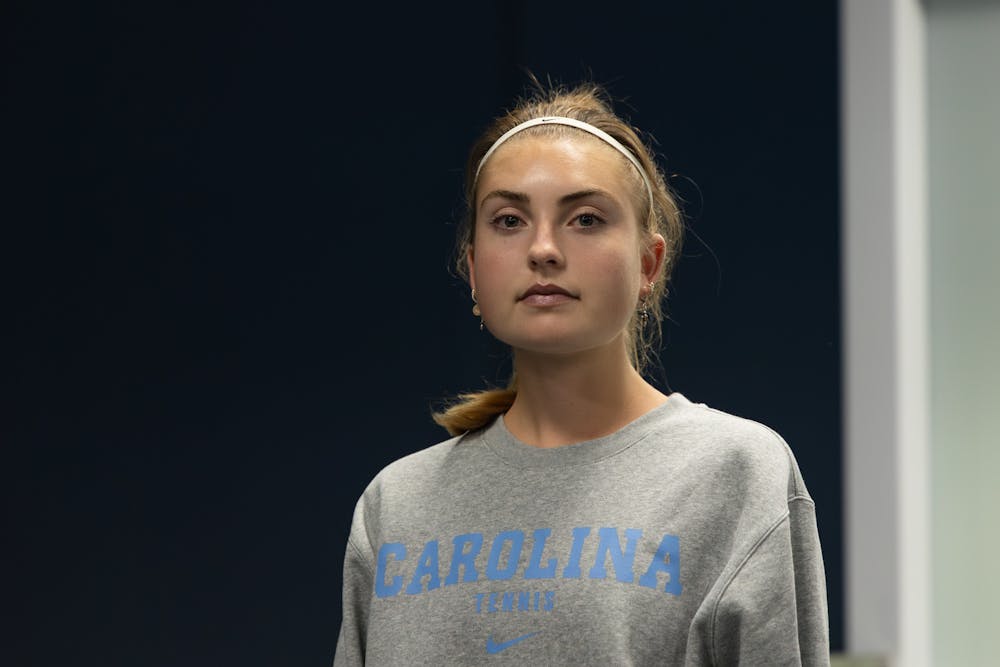After weeks of traveling to compete at the U.S. Open and other pro-level tennis tournaments over the summer, UNC tennis star Fiona Crawley sat down to fill out her expense report.
Because of her performance in the U.S. Open’s qualifying singles tournament, the UNC senior made it into the main draw on Aug. 29. This made her eligible for $81,500 in prize money from her first-round appearance. Additionally, Crawley and her doubles partner, junior Carson Tanguilig, earned $22,000 as a team for qualifying for the Grand Slam’s doubles tournament. But keeping all of the money would jeopardize Crawley's remaining eligibility.
So, the No. 1 ranked collegiate women's singles player said she tallied up her tennis-related expenses – including receipts from hotels, Ubers, meals and flights – and gave everything else back. For college tennis players like Crawley who compete in pro tournaments, the process of collecting receipts and filling out expense reports is familiar.
Nate Wood, UNC's associate athletic director for NCAA compliance, said athletes participating in individual sports are allowed to receive prize money to cover necessary expenses for playing in professional tournaments. This can include flights, housing and food, as well as costs associated with equipment, tablets to review film and post-match or practice treatments.
However, athletes cannot use prize money to cover the travel and housing costs of family or trainers that they bring along with them to tournaments. Generally, the costs that are deemed necessary vary from sport to sport and depend on what the individual athlete needs to compete, which Wood said can be tricky.
Former standout on the North Carolina men’s tennis team and world No. 76 Rinky Hijikata left UNC after the 2021 season and has since won the 2023 Australian Open doubles title. He said he ran into similar issues relating to prize money when he was in college and that he sympathizes with Crawley.
“Someone like Fiona, I think she definitely deserves some money,” he said. “She's put in a lot of hard work, and to qualify for the U.S. Open is a pretty amazing feat, especially while you're still in school.”
Hijikata said, in an individual sport like tennis, Crawley’s prize money would have gone a "long way" to help her start her pro tennis career after college.
“My mom was asking me if I wanted to go to Lululemon or things like that [or] fly back first class,” Crawley said. “But, I don't want that. What I would want is to put the money in a safe and save it for when I graduate and actually wanna get a flight to Europe and go try to travel [to play tennis internationally] because I don't have any money for that.”



